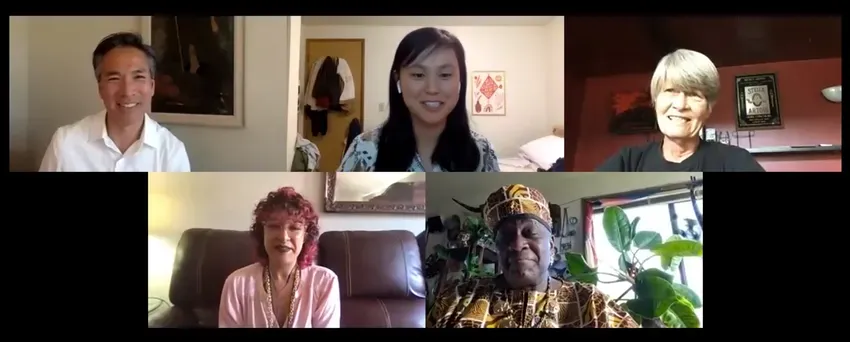Despite Capitol Hill's rich LGBTQ+ history, the neighborhood and its Queer community still have a ways to go.
Four panelists from well-known LGBTQ+ establishments met on Thursday, June 24, for a virtual panel hosted by the SGN and The Evergrey. The panel focused on the rich history of the neighborhood and what the community there faces in the future.
"I often forget just how freeing walking around on Capitol Hill is, but I really remember when I go and visit other places and I'm a little bit more conscious of what I'm wearing, of my armpit hair, of my curly loudness," said Alanna Francis, the development and community outreach manager of Three Dollar Bill Cinema.
"When I'm walking around on the Hill... I can just be me, because that is what I've either reclaimed, or many people around me have been really pushing, so that we're able to continue walking around and feeling that sense of community."
Jeff Sakuma and Dee Ireland Lewis recalled the original appeal of Capitol Hill during the blossoming of its LGBTQ+ community. Though Pioneer Square and Belltown also had sizeable Queer populations and considerable history, it was the availability of apartments, nightlife, and other establishments that drew so many young Queer people to the Hill.
"At that time, it was a very affordable place with lots of apartments. It was just a good place, back in 1979, 1980, to find that affordable housing option with a group of friends, in a big old house that we rented on the Hill," said Sakuma, a steering committee member for the AIDS Memorial Pathway Project. "Also, there were some very prominent and significant businesses that began up there that really catered to the queer community."
The Hill was also reminiscent of San Francisco, another draw for those migrating from the "Gay mecca of the West Coast," as Lewis, he founder of Seattle's first chapter of Sisters of Perpetual Indulgence, put it. Lewis moved to Seattle from the Bay Area in 1985.
Despite the growing presence of friendly establishments over the decades, residents and patrons on Capitol Hill still experienced discrimination and prejudice. Lewis recalled a man from Mississippi confronting him on his sexuality after overhearing Lewis and his friend's conversation at what was otherwise a friendly business Lewis frequented.
"Now, that was not a problem with the establishment itself, but this was a patron sitting near me within earshot of our conversation," Lewis said, noting that this happened sometime within the last ten or so years. "That question – Why was I there? – I was offended by it, but that was just the mentality of where he had come from. I made it very clear that in Seattle, we really could drink where we want, and that shouldn't be an issue."
In light of a deadly pandemic, an economic crisis, and demands for racial justice both in the US and locally, the LGBTQ+ community of Capitol Hill stands at a pivotal moment. The recent attention to Capitol Hill Pride's organizers' letter of complaint to the city – alleging that Taking B(l)ack Pride's reparations fee policy was reverse racism – highlights the need for growth.
"I think that the pandemic has given us a chance to change our way of dealing with each other. And I really hope that what can come out of this is more kindness, and more respect for each other," said Shelley Brothers, co-owner of The Wildrose. "I think that's what we just have to keep showing within our community so we can heal these problems we have. I don't think they're insurmountable. But they do require us to all sit down and take a good hard look and come up with solutions."


